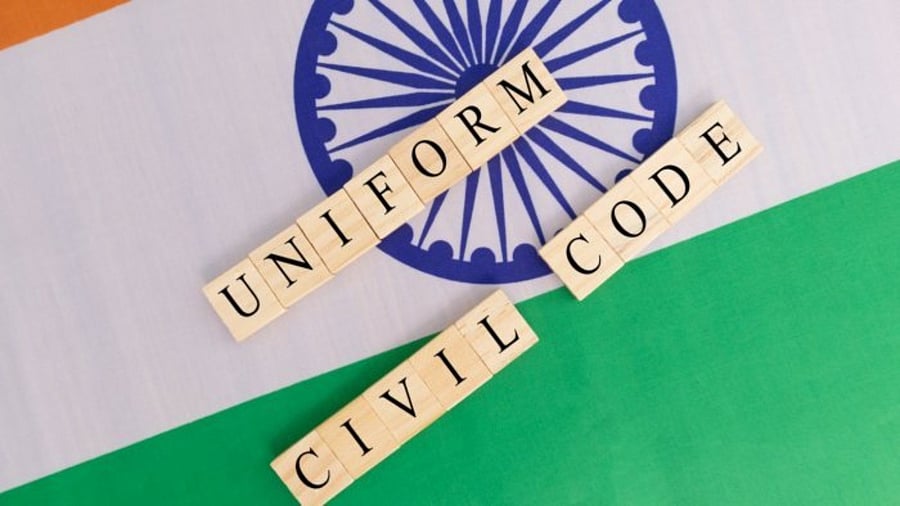
Just ahead of the announcement of Assembly poll dates, the BJP-ruled Gujarat government has decided to form a committee to examine the possibility of the Uniform Civil Code. The move apparently is aimed at addressing its political constituencies as a similar decision was taken by the BJP government in Uttarakhand before the Assembly polls earlier this year.
Notably, the development comes days after the Narendra Modi government filed an affidavit in the Supreme Court, asking it to dismiss pleas filed by advocate Ashwini Kumar Upadhyay for the Uniform Civil Code, saying whether to have particular legislation or not is a policy decision and the court cannot give any direction to the executive.
At the same time, the government maintained that different people following varied laws was an "affront to the nation's unity".
In its previous term, the Modi government referred the matter to the Law Commission, which in its consultation paper on August 31, 2018 said the Uniform Civil Code is neither necessary nor desirable at this stage. The Commission has remained headless since then and the issue is pending over there for more than four years.
Article 44 of the Constitution as part of the directive principles of the state policy states that the state shall endeavour to provide for the inhabitants a consistent civil code across the territory of India.
The directive principles are not enforceable and justifiable in any court.
In the Constituent Assembly debates, members opposed the proposition of the uniform civil code as it would fall foul of the fundamental right to follow one's religion. Besides concerns of losing the religious identity, there are ethnic and tribal communities which would be wary of a unified code being enforced across the country.
Senior advocate Dinesh Dwivedi is highly critical of the move. "It can't be during the elections. I am not a believer in UCC at all. It is absolutely useless exercise. Why are we particularly bothered about one religion, if people in their religion are happy with what they have? It is a waste of time, but, of course, it has political ramifications, therefore, they do it," he said.
Prof Faizan Mustafa, former Vice Chancellor, NALSAR, Hyderabad also said, "I feel law reforms should not be in any way connected to electoral politics. It is a serious business and it should not be formed part of electoral politics. Just before the elections are going to be announced, they are forming a panel even though the party has been in power for 26 years or so."
He, however, felt reforms are necessary and all laws have to be compatible and consistent with the constitutional mandate.
Prof Mustafa suggested piece-meal reforms, rather than going for it in one go, we should go slow like first focusing on reforms on marriage, then divorce and the inheritance laws etc.
"Uniformity in laws is not as important as justness of laws. Different communities may have different laws as legal pluralism is a widely recognised concept. All laws must be consistent with gender justice, and ideals of equality and equity. In a country as diverse as India, it is difficult to have one law. Even Hindu law is not the same in the entire country. Ideally, we should have an experts committee to decide about it," he said.
The Hindu Code Bill was taken up in 1955 but the experts' committee was formed in 1941, so it took good 14 years to develop a kind of consensus, he pointed out, emphasising the need to have Hindu, Muslim and Tribal laws committees with experts from fields.
There have been a number of judicial pronouncements stressing the need to have a uniform civil code, including the Shah Bano case (1985), the Sarla Mudgal Cass (1995) and the John Vallamattom case (1999).
Recently on September 13, 2019, Justices Deepak Gupta (since retired) in a judgement along with Justice Aniruddha Bose of the Supreme Court lamented that despite the founding fathers' wish, no step has so far been taken by the central government for framing a uniform civil code.
Delhi High Court's Justice Pratibha Singh also in a judgement on July 7, 2021 said the hope expressed in Article 44 that the State shall secure for its citizen a uniform civil code should not remain merely a hope.

